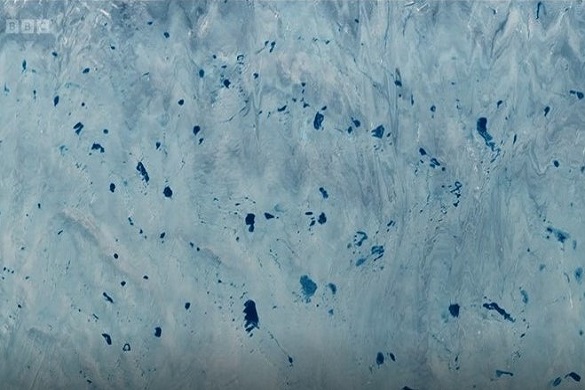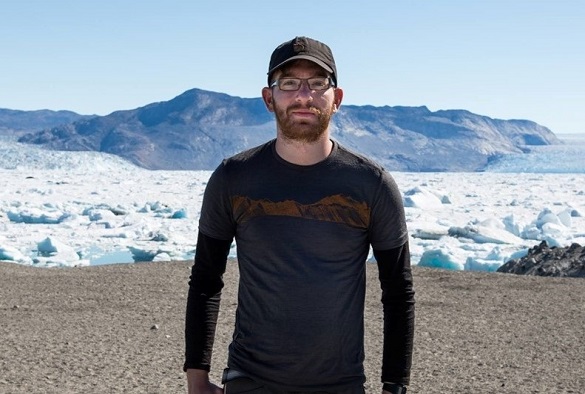University glaciologist contributes to Frozen Planet 2 series
Published on

A glaciologist from the University's School of Environmental Sciences, Dr James Lea, has contributed to the BBC's latest Frozen Planet 2 series.
Dr Lea has studied glaciers for more than 12 years and has undertaken extensive field work in Greenland, Scandinavia and Svalbard for his research exploring past and present behaviour of glaciers, and how they respond to climate change and impact people.
The latest series of Frozen Planet 2, narrated by Sir David Attenborough, explores the wildlife found in the world's coldest region and Dr Lea provided both his expertise and imagery of the region to it.
He contributed his expertise in satellite imagery and understanding of how the ice sheet melts to provide the series with stunning imagery, showing the view from space of how massive meltwater lakes form on top of the Greenland ice sheet every year.
His imagery shows how these lakes start forming during spring, grow and then drain catastrophically once they get too big, delivering huge volumes of meltwater to the base of the ice sheet, which in turn impacts how fast the ice flows.
The series also benefitted from Dr Lea's expertise in glaciers that form icebergs, advising the Frozen Planet 2 team on the tasking of cubesats to acquire very high resolution satellite imagery of some of these glaciers. This included identifying where the best locations were to target to avoid cloud cover and how to process the images to clearly show the ice sheet behaviour
WATCH: Frozen Planet 2 episode 1 with Dr Lea's imagery at 0:42-0:47 and 40:55-41:17 at https://www.bbc.co.uk/iplayer/episode/m001c24c/frozen-planet-ii-series-1-1-frozen-worlds
Dr Lea is Reader in Glaciology and holds a prestigious UKRI Future Leaders Fellowship, which aims to improve knowledge of both future global sea level change, and understand the risks to future Arctic shipping routes. He also works with stakeholders in Greenland to help improve safety and understanding of iceberg risks to people and industry.
